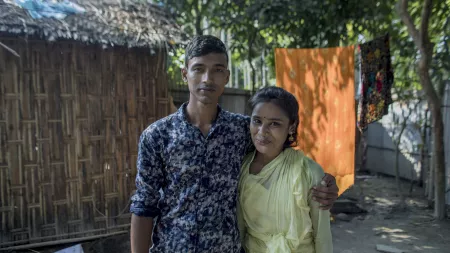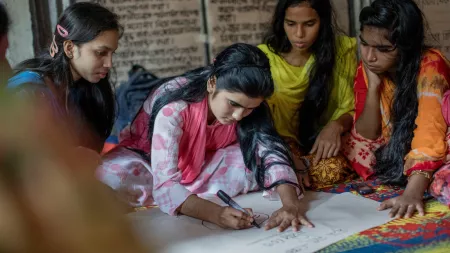The importance of access to sexual and reproductive health
Millions of women live in rural areas with limited access to healthcare. Even if a woman is fortunate enough to have the power and means to seek medical services, she may find the nearest facility lacks basic supplies and properly trained staff in terms of providing culturally appropriate care.
Power dynamics and unequal social and gender norms constrain women and girls’ ability to access and use family planning, while healthcare workforce shortages globally deprive many of access to skilled care. The increasing number of humanitarian crises and situations of chronic instability makes such services even harder to reach, and women and girls still struggle to be heard.
What is CARE International doing to increase access to sexual and reproductive health?
CARE International believes that the realization of the right to health cannot be achieved through direct services alone. Large-scale and sustainable change requires that we address underlying and systemic factors, including gender inequality, policy barriers, and power imbalances that have an impact on health.
We work with community leaders, women, and health workers to understand and address the reasons for high maternal death rates. We challenge social and gender norms so women can make decisions for their own health and well-being.
CARE International aims to increase the fulfillment of 30 million women's right to sexual and reproductive health by 2030. This will include increasing access to quality health services, including sexual and reproductive health and rights services in humanitarian and fragile settings to support more robust resilience and sustainability over the long term.


